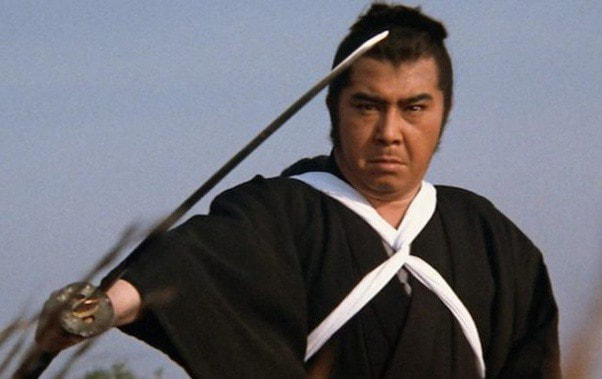
I Spit on Your Grave (1978), The Last House On The Left (1972) and Ms. 45 (1981) all fit within the grindhouse genre and further within the subgenera of rape revenge films. All of these films have been derided as offensive, prurient, exploitative and misogynist. Although it is true that all three have a lot in common there are some important distinctions that can be made.
Some critics hail these films as feminist fantasies that empower women. Whether it is possible to make a rape revenge film that empowers women is questionable at best. I would argue that two out of the three movies discussed here not only fail to empower anyone but move in the opposite direction.
Both I Spit on Your Grave and The Last House On The Left clearly have prurient aspects. Wes Craven, the writer and director of The Last House On The Left, claimed that the graphic violence in his film was a reaction to the Viet Nam War footage being broadcast on television. He alleged that people were becoming desensitized to violence and his film was an effort to challenge that. Not only is this reasoning unsound it seems more like a rationalization than a viable explanation.

The violence in the The Last House On The Left is presented for the sake of arousal, not necessarily sexual arousal alone but the full spectrum of what arousal refers to, a general state of heightened excitement. Arousal can include anger, excitement, horror or agitation. Arousal is a particularly apt word in that it does not have a moral or ideological facet. The Last House On The Left has no message. It is just a means of exciting the audience.
In this sense it is truly an exploitation film. It uses human suffering and female nudity toward no other end than selling tickets. The fact that in the end the evil doers are punished is irrelevant, The film is not about justice, it is about reveling in forbidden images. The camera stays close to the crimes and fills the screen with blood and naked women. The scenes of domination, rape and torture are drawn out to heighten and prolong the experience. The character development and back story are minimal. The point is to witness the taboo. Having a woman bite off a man’s penis during fellatio is not a feminist statement it is a deliberately shocking act meant to excite.
It is more difficult to assess or label I Spit on Your Grave. The director Meir Zarchi claimed that he was inspired by an incident where he helped a young woman who had just been raped. Roger Ebert was not impressed by this explanation and called the film “a vile bag of garbage.”
I Spit on Your Grave surely has elements of exploitation, but the viewer is treated a bit more like a witness and less like a reveler. The characters have a little more depth and the camera stands further back from the action. In some ways I Spit on Your Grave is more graphic than The Last House On The Left, but it is in service of the drama. The drama is what saves it from being completely gratuitous. The events are given an emotional context that helps us understand them.
In both I Spit on Your Grave and The Last House On The Left the perpetrators’ characters are at least as well developed as the victim’s if not more. This is a sign that we the audience members are being presented with the opportunity to identify with either side. It is often the case that whoever spends the most time on screen is the hero of the film. They are the ones we are meant to identify with. If a villain gets too much screen time our allegiance will falter.
Abel Ferrara’s Ms. 45 may belong to the same genre as the other two films but it is the only one of the three that has any real potential for being feminist or empowering. The two rape scenes are clearly presented as horrible, distressing and completely un-erotic. They do not seek to titillate but instead insight anger and frustration.
Ms. 45 goes further into gender commentary than either of the other two films. Our protagonist, Thana, is mute, an obvious metaphor for the female voice in society. Thana is not only subjected to rape but she is also sexually harassed by her boss and by men in the street. The rape revenge story is given a larger context that further positions Thana’s actions as part of a social struggle.
The climactic ending of the film has several levels. Thana is at the costume, halloween, office party dressed as a nun. She brings a gun and eventually goes on a killing spree shooting down men dressed as a variety of toxic male images. She shoots the cowboy, the vampire, the football player and more. Not only do we have our revenge but we have humor as well.
Unlike I Spit on Your Grave and The Last House On The Left, Ms. 45 ends badly for our protagonist. Lanna is stabbed in the back by another woman and screams “sister” before dropping dead. This last commentary is surely an indictment of women’s roles in supporting patriarchy and an appeal for solidarity.
Films, like speech, can be interpreted and misinterpreted. They also can both end up saying something that the author may not have intended. Lastly they can both reveal implicit ideologies and feelings that were hidden to either the author or the audience. These films exist within this tangle of meaning. Perfect clarity cannot be achieved but in comparing the three films as statements only Ms. 45 has the potential to be a positive statement about women and power.

If you enjoyed this article click here for more
www.filmofileshideout.com/archives/a-comparison-of-three-films-entitled-maniac




[…] have a long history. In the 1970s they were mostly an excuse to show a lot of rough sex. Movies likeI Spit On Your Grave and The Last House On The Left were not attempting to empower women, they were an opportunity to eroticize rape. Teeth avoids […]
[…] emerged as a popular idea. The same trend was taking place in America with films like I Spit On Your Grave, Ms. 45, and Last House on The Left. Japan’s blend included a second layer, that of the […]